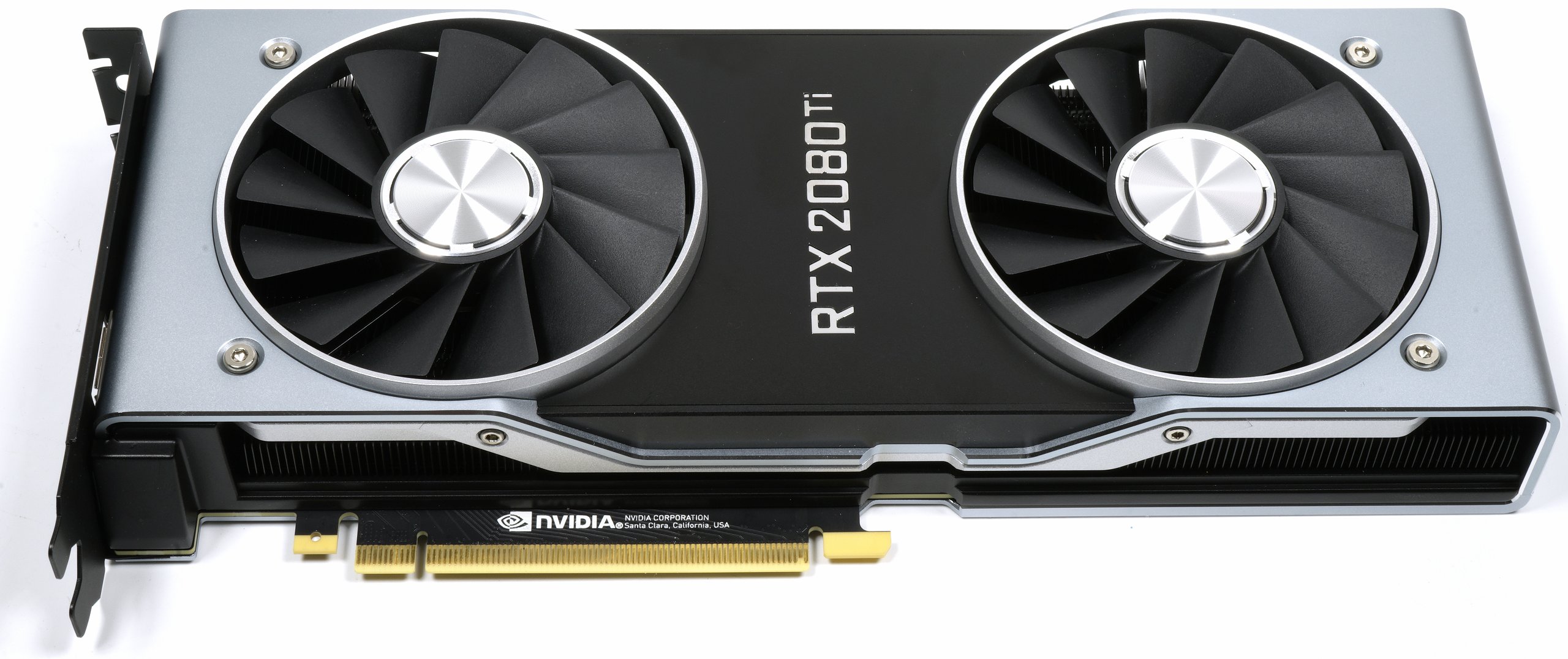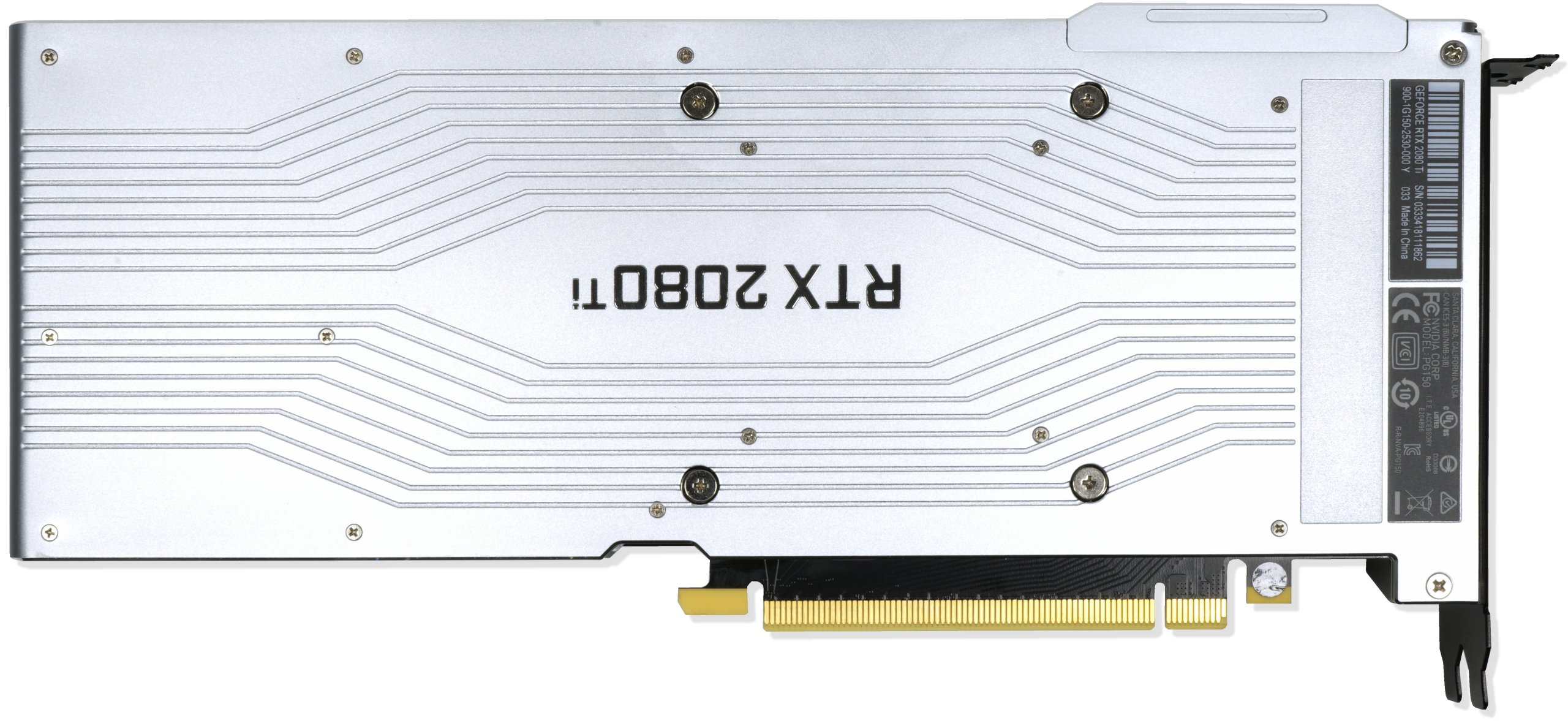Nvidia GeForce RTX 2080 Ti Founders Edition Review: A Titan V Killer
Why you can trust Tom's Hardware
Conclusion
In the days after its GeForce Gaming Celebration, Nvidia took a lot of heat for introducing an entire family of graphics cards loaded with features that aren’t available to enjoy, and then ignoring their performance in today's games. To make matters worse, enthusiasts comparing GeForce RTX 2080 Ti to GeForce GTX 1080 Ti and GeForce RTX 2080 to GeForce GTX 1080 focused intently on the generational mark-ups applied to Nvidia’s Founders Edition cards (70%+ in the case of RTX 2080 Ti).
But now that we’ve covered the Turing architecture in-depth and thrown our benchmark suite at every high-end board in the lab, it’s time to face some sobering truth. If you aspire to game at 4K and don’t want to choose between smooth frame rates and maxed-out graphics quality, GeForce RTX 2080 Ti is the card to own. There’s just no way around it. Demonstrating average performance beyond what a Titan V achieves in today’s games speaks volumes. In many of our tests, there was even room to enable anti-aliasing at 3840x2160.
Looking to the future, Microsoft will lay a foundation for real-time ray tracing and AI with its Windows 10 October Update, scheduled to include DirectX Raytracing and Windows ML. A month later, Battlefield V is expected to launch with hybrid rendering support. A post-launch patch will add ray tracing to Shadow of the Tomb Raider, though there’s no way to know exactly when that will happen. Through the end of 2018 and 2019, Nvidia says nine other games will make its vision a reality, “with more to come.” Slowly, the pieces are falling into place. We see the end-game and we’re excited about what ray tracing means to realism and immersive gaming experiences.
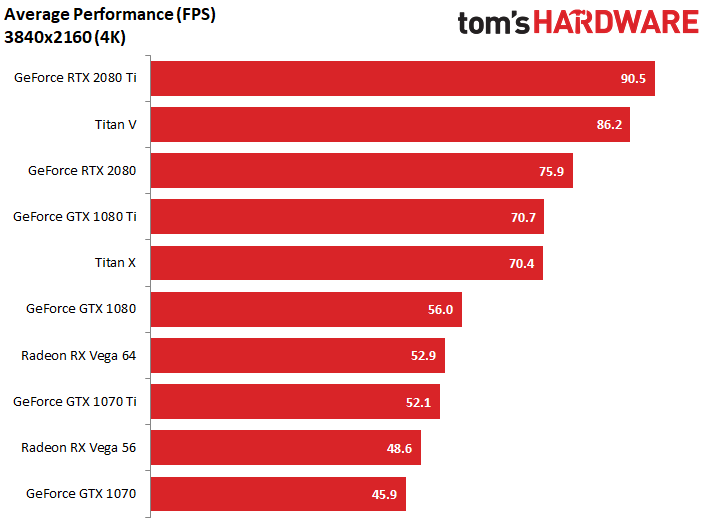
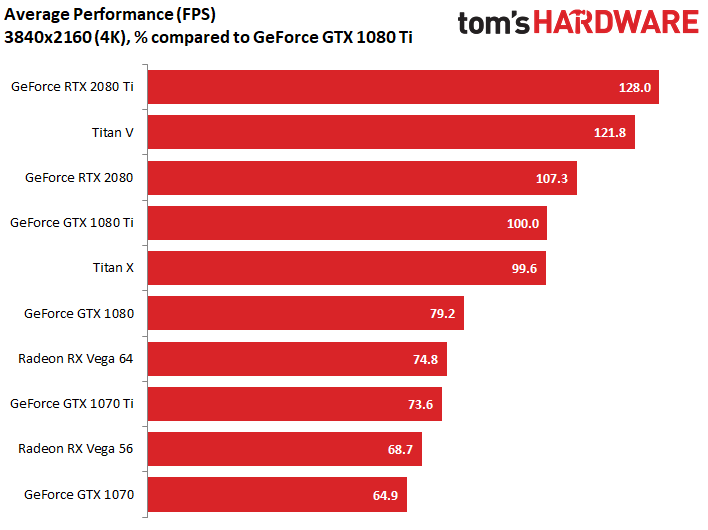
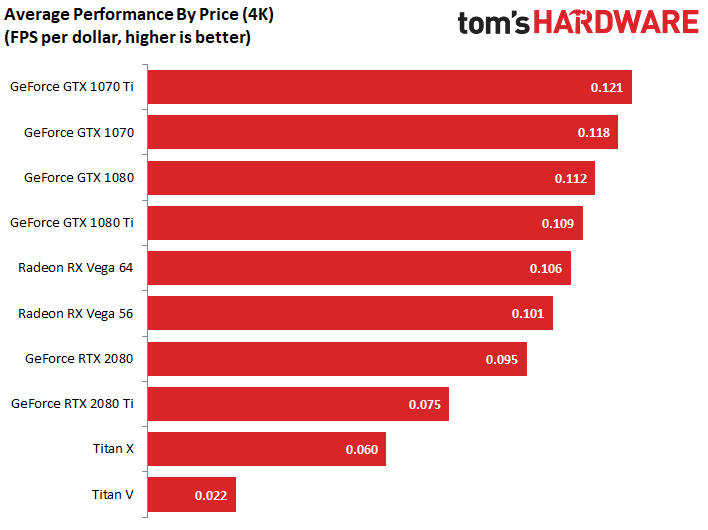
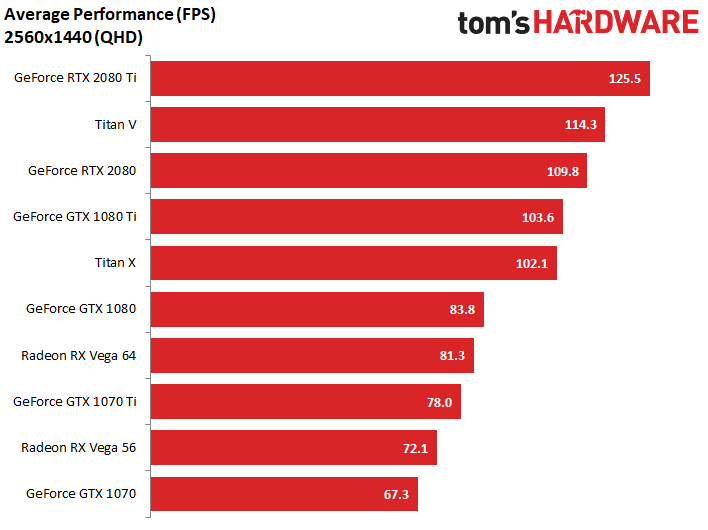
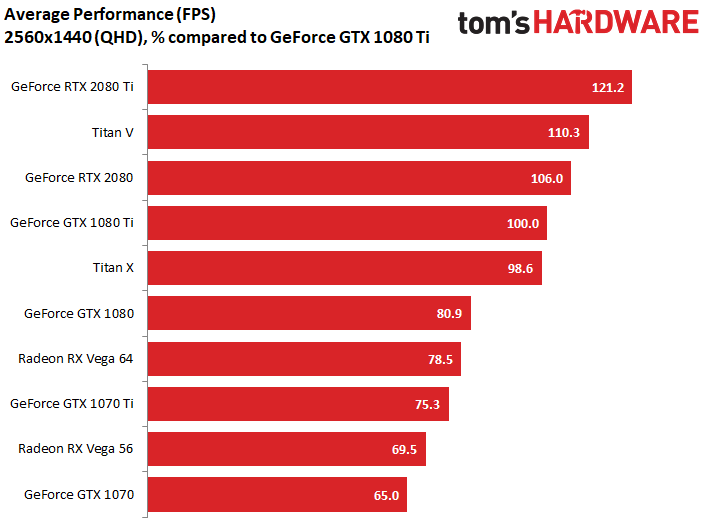
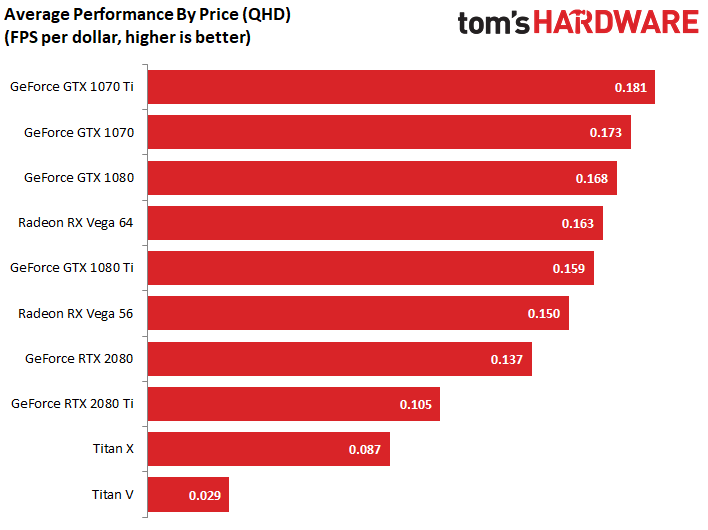
Do you need evidence before you put faith in this cause? Check out the Star Wars Reflections demo that we recorded at 2560x1440 and 3840x2160. With DLSS enabled, we saw ~50 FPS at QHD and ~30 FPS at 4K. Frame rates were predominantly in the 20s at 2560x1440 without DLSS. We also made a video running on GeForce GTX 1080 at QHD, but it only ran between 6 and 8 FPS. So, you can see how these technologies fit together, creating a truly cinematic scene rendered in real-time on Turing-based GPUs.
But we fancy ourselves advocates for enthusiasts, and we still can't recommend placing $1200 on the altar of progress to create an audience for game developers to target. If you choose to buy GeForce RTX 2080 Ti, do so for its performance today, not based on the potential of its halo feature.
Deep learning super-sampling may yield more immediate returns from the Turing architecture’s Tensor cores. Not only is there a longer list of titles with planned support, but we already have performance data to show the technology’s impact on frame rates in Final Fantasy XV. All of the DNN training work is handled on Nvidia’s side; the company just needs developers to integrate its API. The Tensor cores sit unused until that happens, so again, this is a feature to keep an eye on.
The Tom’s Hardware team is divided in its opinion of thermal solutions with axial fans. I personally prefer the elegance of a centrifugal cooler that exhausts waste heat, even if it means more noise and less overclocking headroom. However, Nvidia says its customers wanted lower temperatures and quieter-running Founders Edition cards. The company responded with a beefy vapor chamber-based design topped by two 13-blade fans that blow GeForce RTX 2080 Ti’s 260W back into your chassis. For all of our protestations, though, GeForce RTX 2080 Ti may ultimately owe its success to this cooler's technology. There's little doubt that Titan V strains against its industrial design. While the card is gorgeous, its 21.1 billion-transistor GPU cannot run cool enough under a centrifugal fan to hit big GPU Boost numbers. GeForce RTX 2080 Ti, on the other hand, leverages low temperatures and ample headroom to skate on by.
Get Tom's Hardware's best news and in-depth reviews, straight to your inbox.
In the end, Nvidia built a big, beautiful flagship in its GeForce RTX 2080 Ti Founder Edition. We’ve smothered CEO Jensen Huang’s favorite features with caveats just to cover our bases. And we commiserate with the gamers unable to justify spending $1200 on such a luxury. But there’s no way around the fact that, if you own a 4K monitor and tire of picking quality settings to dial back in exchange for playable performance, this card is unrivaled.
MORE: Best Graphics Cards
MORE: Desktop GPU Performance Hierarchy Table
MORE: All Graphics Content
-
A Stoner Conclusion, let them hold onto these card until they can lower the price to about $700Reply -
pontiac1979 "Waste of time to write a review. "Just buy it"."Reply
Oh yeah, god forbid Tom's does an in-depth review of the latest and greatest. Keyword greatest. If you desire 4K gaming and have the funds available, why wouldn't you? -
ubercake I'm probably going to buy one... Though it's not my fault... I feel like the Russians are compelling me to do this by way of Facebook. I'm a victim in this whole Nvidia marketing scam. Don't judge.Reply
That being said, I like high-quality, high-speed graphics performance. This may also be influencing my decision.
Great review! -
AnimeMania How much of the performance increase is due to using GDDR6 memory? I know this makes the cards perform better the higher the resolution is, how does it effect other aspects of the video cards.Reply -
teknobug "Just buy it" they said...Reply
If you're in Canada, you might not want to pay the price of these. -
chaosmassive While I appreciate this very detailed and nicely written review, its kinda redundantReply
because I think Avram has already reviewed this card with his opinion on late august
with the conclusion was "just buy it" -
wiyosaya SMH I don't understand the reasoning for comparing a $3k known non-gaming card with a $1.2k gaming card. Are there really gamers our there ignorant enough, other than those with deep pockets who want bragging rights, to purchase the $3K card for gaming when they know it is not meant for gaming? Or is this to differentiate Tom's from the other tech sites in order to inspire confidence in Tom's readers?Reply
Personally, I would have rather seen the 2080 Ti compared against 1080 Ti even if it Tom's comes to the same conclusions as the other tech web sites.
The comparison in this article does not make me want to rush out and buy it because it is $1.8k cheaper than a non-gaming card. I really hate to say it, but with the premise of this review being somewhat along the lines of "lookie hereee kiddies. Heree's a gaming card for $1.2k that beets a $3k non-gaming card" turned this review into a TL;DR review for me.
